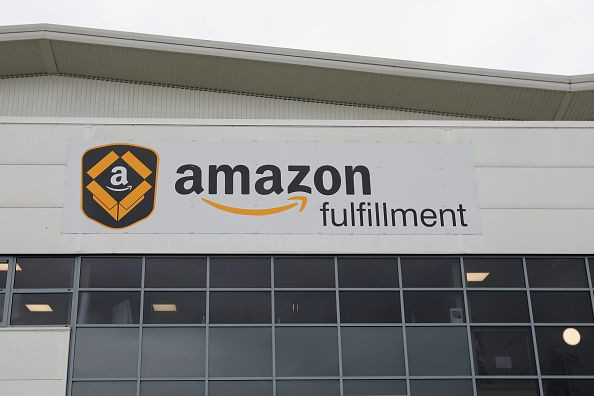Amazon Is Cannibalizing Itself With Third-Party Sales

Third-party merchants already account for more than half of sales on Amazon's (NASDAQ:AMZN) marketplace. Now it seems the company wants to tip the scales a bit further.
The online retail giant suddenly stopped making orders with many of its wholesale vendors, according to a report from Bloomberg. Instead, Amazon is encouraging those vendors to use its third-party merchant services to sell inventory directly to consumers. The move could reduce overhead, open more space in its warehouses and fulfillment centers for more profitable products and services, and increase overall profits for Amazon's core retail business.
The real value of Amazon
Amazon has built a business that revolves around scale, and now it's cashing in.
It built its core retail operations around broad selection and low prices and it sacrificed profits for years in order to expand its market share. Amazon's share of online sales continues to grow, and eMarketer expects it to take more than half of all online sales in the United States this year.
In the process, Amazon built a loyal customer base and a vast fulfillment network. Those two assets may be much more valuable to Amazon as a market-maker rather than as a more traditional retailer.
Indeed, analysts at Evercore ISI recently valued Amazon's third-party marketplace at more than twice the value of Amazon's own retail business. That's despite the fact that Amazon's third-party merchant services generated roughly one-third the amount of revenue.
The margins on Amazon's third-party seller services are significantly higher for Amazon. Amazon takes a percentage of each sale made through its marketplace. If a seller uses additional services like Fulfilled by Amazon -- where Amazon stores and ships inventory for merchants -- it takes another fee. The marginal cost of offering those services is relatively low for Amazon because it operates a massive retail business itself.
That's the benefit of its scale.
Removing costs
By comparison, Amazon bears much greater costs and greater risk from direct retail. It lists products and fulfills orders for free in exchange for wholesale pricing on inventory.
Not only does that require more cash (since Amazon buys inventory up front), but it incurs other overhead expenses as well. Amazon personnel work directly with vendors whereas most third-party sellers can use Amazon's automated system.
There's also the opportunity cost. Amazon has been, on occasion, constrained by its fulfillment capacity. If vendors are in charge of fulfilling their own orders, or otherwise paying Amazon to do it, it could decrease pressure on Amazon to expand its fulfillment capacity. At the same time, it would increase its opportunity to sell more fulfillment services.
It could also free up room in Amazon's warehouses for more private-label products. The expanding assortment of products developed by Amazon itself carry higher profit margins for the company compared to its vendor sales. The retailer currently has over 70 private brands and that number continues to expand as Amazon uses its shopper data to find new opportunities.
Pursuing new opportunities to scale
A more profitable retail business could open more opportunities for Amazon to operate certain businesses at unprofitable margins while capturing market share.
The company has expressed intent on entering the shipping business recently. Moving vendors to its third-party platform and encouraging to use their own warehouses could increase the opportunity for Amazon to offer shipping services to those same vendors. It could offer the services at a relatively low price because it's making more profits on those same vendors' retail sales. In turn, it could quickly scale the operation because it has built-in demand for capacity.
Amazon always seems to be expanding into new industries. Finding greater profits and better cash flow from its core retail business can allow it to sink more cash into any of its projects, including grocery stores, healthcare, and artificial intelligence.
Or Amazon could focus on boosting profits and returning capital to shareholders. But that's very un-Bezos.
This article originally appeared in the Motley Fool.
John Mackey, CEO of Whole Foods Market, an Amazon subsidiary, is a member of The Motley Fool's board of directors. Adam Levy owns shares of Amazon. The Motley Fool owns shares of and recommends Amazon. The Motley Fool has a disclosure policy.





















